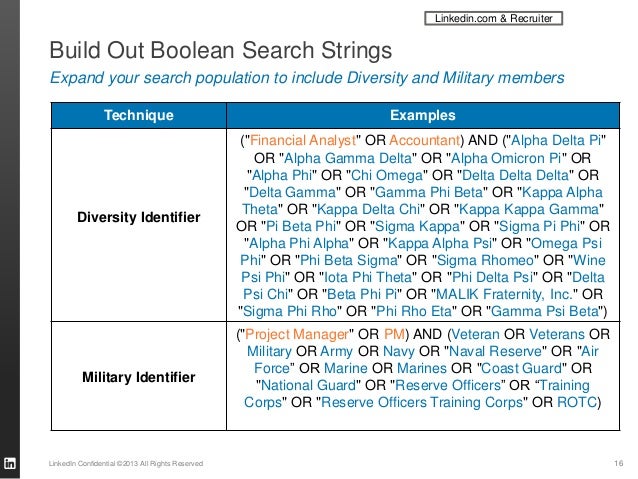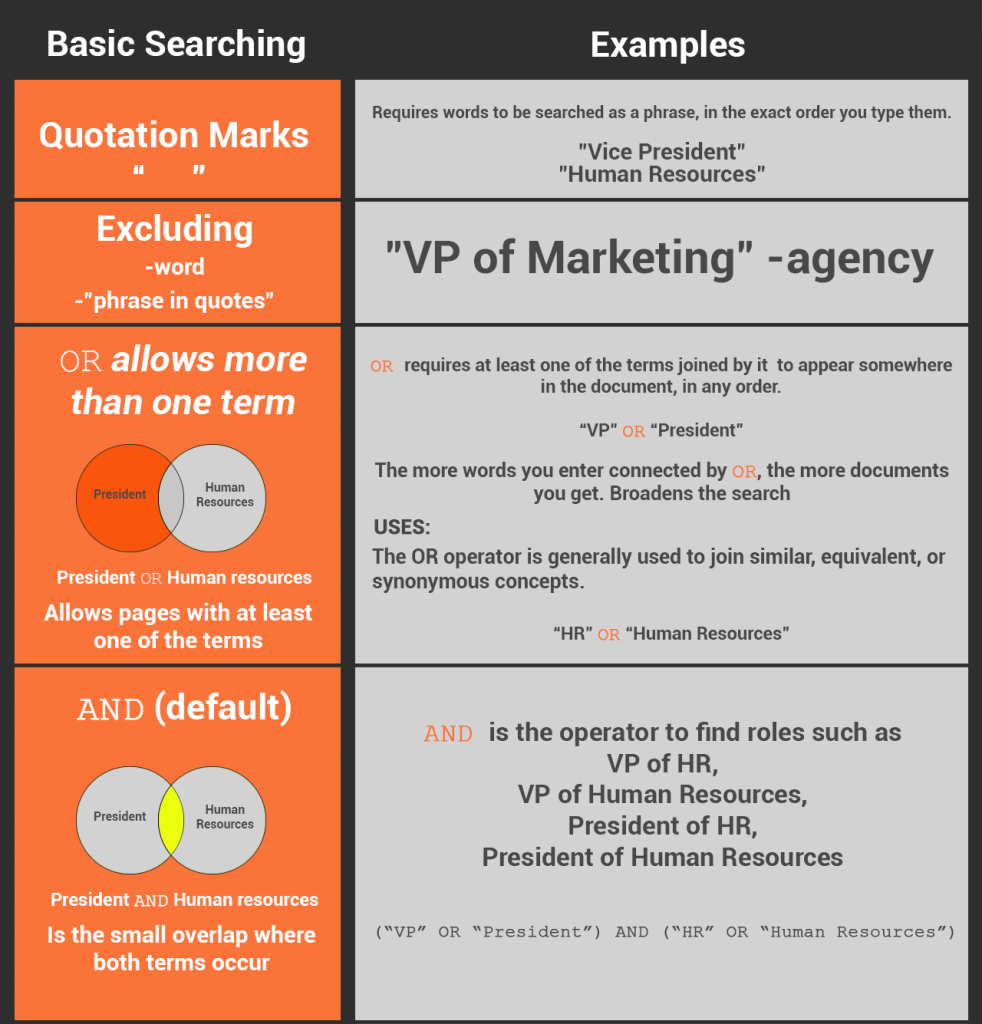
- #Google boolean search strings for recruiters professional
- #Google boolean search strings for recruiters free
Even before that boolean search was used by librarians who were searching the web for credible information, resources and articles to support thesis statements and your college term papers.Ī search engine X-ray whether Google or Bing effectively allows you to search web pages for specific keyword combinations and information. The internet is effectively the world’s largest haystack and your candidate is the needle you are seeking.īoolean search has been an internet sourcing and recruiting staple for years, as recruiters search for databases, member lists and candidate profiles. The sheer amount of information makes it hard to locate qualified candidates among the trillions or quadrillions of online profiles, communities and social networks. The Internet is the noisy and extremely complex. It is an effective way of sourcing and searching for very specific skills, traits and qualifications of candidates you want to find on the Internet. Boolean allows you to combine words and phrases using the words AND, OR, NOT (known as Boolean operators) to limit, broaden, or define your search. It’s perfectly acceptable for you to use and specify your own ATS/CRM if it offers you any syntactical and/or search advantage.One of the most effective ways to source for talent online is using what is called Boolean search. Just be sure to detail what sites the searches are for. You can use any single source or a combination of online sources – that’s up to you.

Washington, DC Let the Boolean String Slinging Begin! You will work directly with the inventory control group to provide the technical needs as driven by the business, and you will be required to provide business analysis support to the eCommerce and retail groups.Ī minimum of 3 years of experience as a Business Analyst This mission critical role will involve you working with the inventory team to provide data analysis, reporting and technical expertise to meet business objectives. How Would You Search for Candidates for this Job? Business Analyst I’ve long contended that if 30 people were given the same position to source and recruit for, you would see 30 different search strings and approaches which would lead to some overlap and as well as a lack thereof. I am interested in collecting a decent number of responses to demonstrate to the HR, sourcing and recruiting world that many people can look at the same straightforward job description and they will come up with a surprising variety and number of different search strings and approaches.

#Google boolean search strings for recruiters free
Feel free to use a fake name (e.g., Recruiter1, Yoda, etc.), and you can even use a fake email address so there is absolutely no way anyone, including me, can identify you. You can choose to remain anonymous and not identify yourself when leaving your comment and your search strings/strategy.You can let the world who you are and what you can do, or….If sourcing isn’t something you’re responsible for – please forward this to someone who would like to participate. I would like you to comment on this post with your search string(s) and a brief overview of your analysis and approach to searching your source(s) of choice if you were responsible for finding and hiring someone for the position detailed below. This leads me to an experiment and a demonstration of sorts and I sincerely hope you will participate. Let’s Prove a Point to the Recruiting World

#Google boolean search strings for recruiters professional
Unlike professional athletes and musicians whose skills and techniques are on display and scientists who publish their work, sourcers and recruiters responsible for talent discovery have absolutely no public basis of comparison. Much of the magic of talent discovery and identification, or lack thereof, happens on each person’s computer screen. In many organizations, sourcers and recruiters do not get (or seek out) the opportunity to compare and contrast their search strategies and tactics with their peers and/or managers on a position-by-position basis. Would 5 different recruiters working the same position use the same search strings and search strategy? Would they find the same people if they used the same source? This fact leads (too) many people to believe that finding talent online is easy and that there is no competitive advantage to be gained in the practice of searching human capital data. One of the most interesting yet overlooked aspects associated with sourcing candidates using the Internet, job board databases, ATS/CRM systems and social networks such as LinkedIn is that as long as your syntax is correct, every search “works.”


 0 kommentar(er)
0 kommentar(er)
